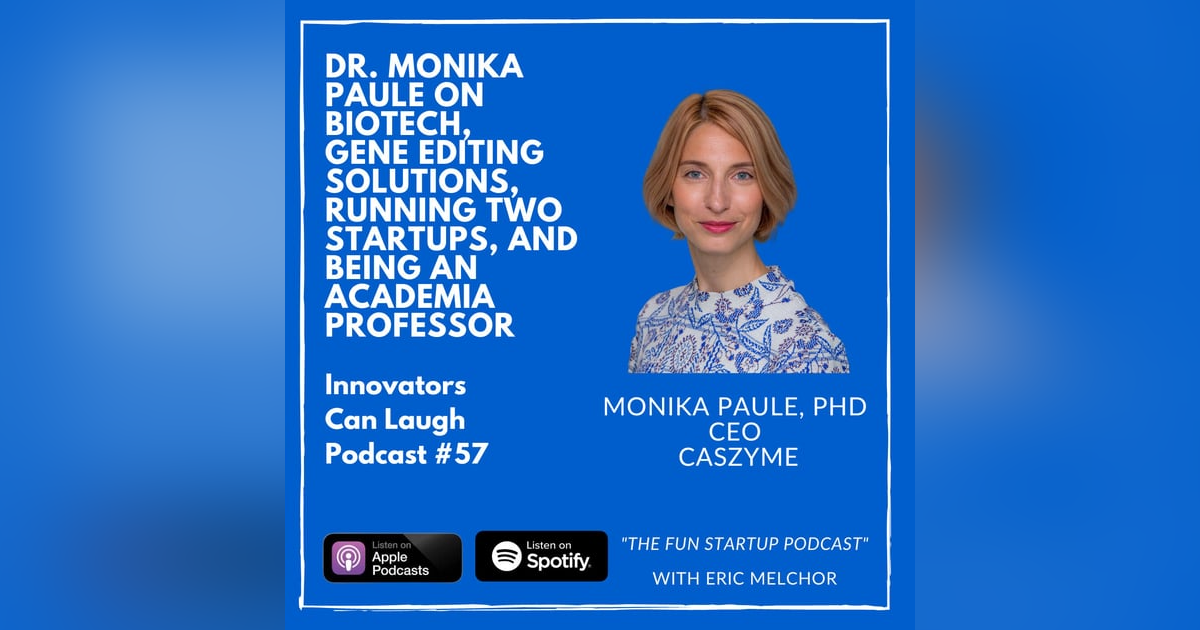Dr. Monika Paule on Biotech, Gene Editing Solutions, Running Two Startups, and Being an Academia Professor

Hey ICL fans. This is a rebroadcast of one of our most popular episodes - a conversation with Dr. Monika Paule. Dr. Paule is a High-tech company founder of two innovative startups and is an Associated Professor & Technology Transfer expert in Academia. When not acting as the CEO at CasZyme, a company which aims to to develop innovative applications in the field of CRISPR based Molecular Tools, she’s building EdTech company “Paulai Tech” which is aimed at STEM Education. Join us as we discuss what life is like running two startups, jugging family life, being the founder of a social initiative called “Women in Biotech, and more.
Show highlights:
0:45 – song Dr. Paule can listen to over and over again
2:19 – does pineapple belong on pizza?
3:29 – hobbies as a kid
4:55 – life in academia
7:05 – an embarrassing moment when lecturing a class
9:16 – what her Innovations role was like at University
11:16 -what’s harder, raising a 7yr old child or launching two startups
11:40 – the challenges Caszyme is facing
12:42 – what people get excited about Paulai Tech (kids edu-gaming platform)
13:38 – the difficult part of launching Caszyme
14:34 – strategies to keep a good worklife balance
15:46 – what Dr. Paule loves about Lithuania











